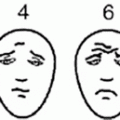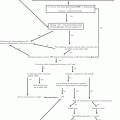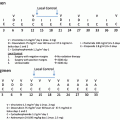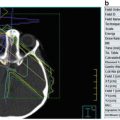Daniela Cristina Stefan and Carlos Rodriguez-Galindo (eds.)Pediatric Hematology-Oncology in Countries with Limited Resources2014A Practical Manual10.1007/978-1-4614-3891-5_12
© Springer Science+Business Media New York 2014
12. Psycho-Social Aspects/Parent Support Groups
(1)
The International Confederation of Childhood Cancer Parent Organizations, CHOC Childhood Cancer Foundation South Africa, 2417, Durbanville, 7550, Cape Town, South Africa
(2)
Mathiwos Wondu-YeEthiopia Cancer Society, Getu Commercial Center 10th Floor, Room Number 1004, 80571, Addis Ababa, Ethiopia
(3)
Asian Children’s Care League-Japan (ACCL), 1-36-9-601 Nihonbashi kakigaracho, Chuo-ku, Tokyo 103-0014, Japan
Abstract
To have a child diagnosed with cancer is one of the most life-altering experiences that a family will ever need to face. Childhood cancer parent groups and foundations have been formed throughout the world to help families through this unwelcome journey.
Despite the fact that the burden of childhood cancer is not recognized in many countries, the impact of the disease on the family, community, and economy is devastating.
In developing countries most children present late with advanced disease. The chances of a successful outcome are severely compromised by this as well as other factors such as access to care, lack of transport, financial burdens, cultural beliefs, etc. In this context the presence of childhood cancer support organizations, parent groups, and childhood cancer foundations is essential in the fight against cancer.
Why should I belong to and how can a parent group help me?
Cancer Facts: Realities
The vast majority of children, and 80 % of those who get cancer, live in developing countries [1] where the survival rate is much lower than those in developed countries. Childhood cancer is highly curable when diagnosed early and adequate access to treatment and care is available, yet most children living in countries with limited resources will not be saved as these conditions do not exist in their countries. As a starting point, in order to be able to tackle this challenge successfully, the realities and needs based on the resources currently available in these resource-limited countries needs to be carefully researched and accurately recorded. Cancer impacts on all aspects of the life of a child with cancer and his or her family. In this chapter, psycho-socio-economic and cultural aspects are addressed so that both medical and nonmedical support can be provided as part of a holistic approach to cancer care for the child and family.
Circumstances: Information, Materials, Finances, and Human Resources
Even among countries with limited resources, the situation at local and national level differs from country to country; therefore, what needs to be considered is what factors are common among all resource-poor countries. Some of these are highlighted under the categories: “Human,” “Material,” “Financial,” and “Information” resources.
Information Resources
The management of childhood cancer care is often impeded by prevailing myths regarding childhood cancers. Such myths would include: (1) cancer is just a healthy life-style issue; (2) cancer is a disease of the wealthy, elderly, and is more common in developed countries; (3) cancer is a death sentence; and (4) cancer is one’s fate [2]. The mistaken belief that childhood cancer is a deadly illness or too difficult to cure can result in parents abandoning treatment or not seeking treatment at all. Stigma and misconceptions abound among cancer patients and their families which makes the provision of accurate information to parents and patients by medical staff so vitally important. Sadly, such misbeliefs are still accepted as fact, even in the medical profession [3].
Materials Resources
Material resources are crucial to and play a significant role in the provision of adequate treatment. Often medical centers that offer diagnosis and treatment cannot provide adequate access to care. Due to the lack of beds in these hospitals, parents of in-patient children face a particularly difficult challenge in that when in between treatments, the lack of beds does not allow them to keep their children in hospital for long periods of time and they have to find accommodation outside of the hospital environment. Some of the parents are not able to return to rural areas due to lack of transport and they are forced to endure hardship and some are often homeless during these times. Often the over utilization of available space leads to issues with infection control. It is here that the provision of a “family house” becomes an important consideration as a place where such families can stay during these relatively short periods between treatments.
Critical shortages of basic diagnostic and treatment equipment is common at treatment centers in resource-limited countries despite the fact that such equipment has proven instrumental in dramatically changing treatment outcomes. Although such basic equipment can be sourced from resource-rich countries, the logistics and paperwork involved often discourages overworked medical staff from exploring these options. It is here that support groups from resource-rich countries can play an important role.
Across low- and middle-income countries, access to essential medicines is often limited [4]. Treatment may fail due to the shortage and/or the unavailability of drugs. To this must be added: insufficient dosages given, counterfeit branded drugs, and the timing of the medications during treatment which may lead to the ultimate termination of treatment and the death of the child. Expanding sustainable access to safe, affordable, and effective essential medicines is one of the keys to increased survival and improved outcomes in childhood cancer [4].
Financial Resources
Financial issues often form a major part of families’ problems and anxieties and can cause much distress at the time of diagnosis and throughout the treatment process. The question arises whether or not medical costs, which include among others, hospital fees, costs for examinations, medicines, blood products, and medical materials, can be afforded by families from resource-poor countries and where families have no or minimal social health insurance and often live a subsistence lifestyle. During hospitalization, families are faced with loss of income as often either the mother or father or both lose their jobs because they wish to be with their ill child. In addition, there are many “hidden costs” of treatment [5], for example, traveling, accommodation away from home, meals, additional nutritional requirements of the ill child, and so on. Abandonment of treatment is one of the significant issues that countries with limited resources are facing and often one of the reasons cited is the financial burden on the family, especially in cases of lengthy treatment.
Human Resources
Without quality medical care by specifically trained professionals, many children cannot benefit from advances in the field of pediatric oncology in terms of diagnostic techniques, treatment methods, and comprehensive support such as supportive and palliative care. The number of permanent medical specialists, including doctors, nurses, and laboratory staff who have undergone specialized training in the field of pediatric oncology, is very small when compared to the number of pediatric cancer patients in the world. A lack of sufficiently qualified staff negatively impacts on the quality of treatment and care currently given in low- to middle-income countries—this is mentioned not to distract from the invaluable interventions that those hospitals and the staff qualified in other fields have had in the lives of many children with cancer. The lack of physicians, nurses, and social workers is a factor which is one of the top five challenges, as reported by sites in countries with limited resources [6]. The many examples of twinning that exists between resource-rich treatment centers and resource-poor treatment centers in developing countries is a very positive step in the right direction [7]. However, in order to avoid late detection, incorrect diagnosis, and inappropriate treatment and care, well-trained medical staff is essential in the long term.
Stay updated, free articles. Join our Telegram channel

Full access? Get Clinical Tree







